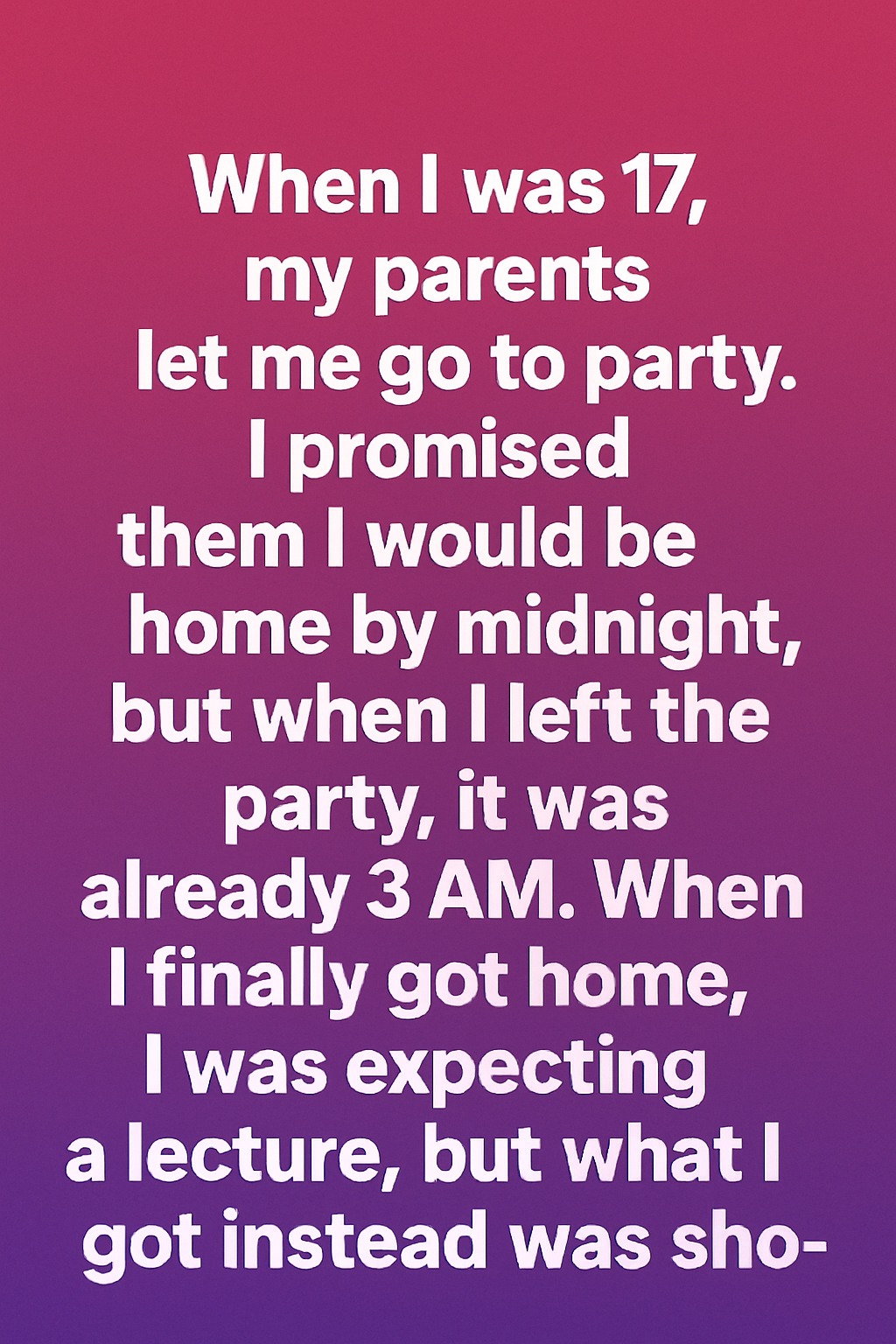When I was 17, my parents let me go to a party. I promised them I would be home by midnight, but when I left the party, it was already 3 AM. When I finally got home, I was expecting a lecture, but what I got instead was sho— silence. The living room light was on, and my mom was sitting on the couch, wide awake, hands clasped tightly in her lap. My dad stood near the window, staring outside as if he had been watching every car that passed. When I stepped inside, neither of them scolded me. Instead, my mom breathed out shakily and said, “We were worried something happened to you.” There was no anger in her voice — only relief and fear mixed together.
I opened my mouth, ready with excuses — my phone died, I lost track of time, my friends insisted I stay. But none of those excuses felt right. For the first time, I saw the fear in their faces clearly. I realized my parents weren’t strict because they wanted control — they worried because they loved me. I apologized, genuinely, and my dad simply nodded and said, “Next time, just call. Nothing is more important to us than knowing you’re safe.”
They didn’t ground me or lecture me. Instead, they made me tea and sat with me in the quiet kitchen until the sun began to rise. We talked, not as parent and child, but almost like equals — about trust, responsibility, and how freedom always comes with care for the people who wait for you. That night changed something in me. I understood that growing up wasn’t about staying out late — it was about learning respect and consideration.
Looking back now, I’m grateful for that moment. I learned that love doesn’t always shout — sometimes it just waits by the window, hoping you come home safe. And from that day on, I never made them wonder where I was again. Because sometimes, the most powerful lessons aren’t taught with anger — they’re taught with quiet understanding and unconditional love.
